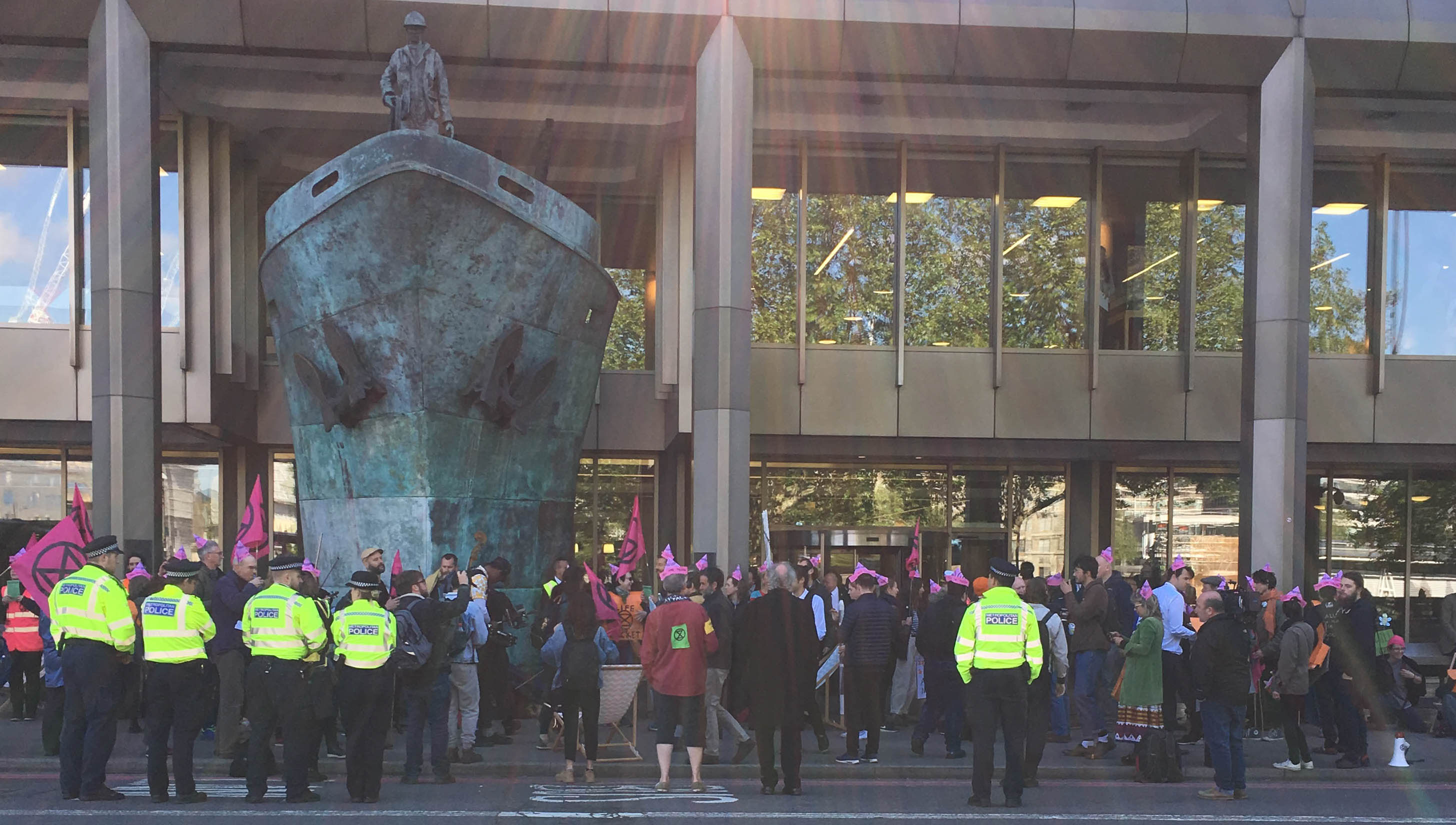Nautilus attends IMO meeting amid renewed protests over shipping's role in climate change
13 May 2019

Climate change protestors sent a stark reminder that 'the world is watching' as International Maritime Organization (IMO) Member States gathered at its headquarters in London to debate shipping's impact on air pollution and ecosystems.
Scores of Extinction Rebellion protestors wearing pink boat-shaped paper caps peppered with environmental texts gathered outside the United Nations IMO body, ahead of the 74th meeting of the Marine Environment Protection Committee (MEPC). MEPC will debate measures to reduce shipping's impact on air pollution and climate change.
The protestors are demanding MEPC votes for ocean-going ships to slow down to diminish the catastrophic effects of climate change. The protestors say shipping is responsible for the equivalent to the Greenhouse gas (GHG) emissions of Germany or Japan.

The UN IMO body's Initial GHG Strategy - which was announced in April 2018 - has stated targets of reducing emissions by 50% by 2050 compared to 2008. The strategy's progress and further recommendations will be reported by a working group at the 74th MEPC.
The IMO says it remains committed to reducing GHG emissions from international shipping 'as a matter of urgency' this century. The protestors argue there are not enough specific measures in the strategy to reduce emissions in line with the targets.
Nautilus is attending the IMO meeting as an affiliate of the International Federation of Ship Masters Association, which is an observer organisation.
Nautilus professional and technical lead David Appleton said the Union was concerned with how environmental decisions may affect ship safety under the proposed Energy Efficiency Design Index (EEDI).
'Whilst we are obviously supportive of measures to improve the environmental impact of shipping, we believe that safety must be paramount in any discussions, and there is a risk with the proposals that the way the calculation is formulated, the easiest way to improve the EEDI score for a vessel, is to reduce the installed power. This has the potential to result in situations where ships are built with insufficient propulsion power to maintain manoeuvrability in adverse weather conditions. '
A decision is expected on strengthening the requirements of the EEDI for phase three due to be introduced in 2050, as well as proposals for how to address the issue of minimum propulsion power for manoeuvrability.
Nautilus argues there are several ways to improve the environmental performance of ships which include slow-steaming, alternative fuels, and innovative hull design among other things.
'The Union's main priority is that there are no unintended safety consequences,' commented Mr Appleton.
Follow this story
-
Environment
2020 deadline for IMO decision on climate change targets for minimum vessel speeds
- News
- 03 June 2019
-
Environment
UN agency launches new global project to tackle maritime GHG emissions
- News
- 14 May 2019
-
Environment
Nautilus attends IMO meeting amid renewed protests over shipping's role in climate change
- News
- 13 May 2019
Tags
